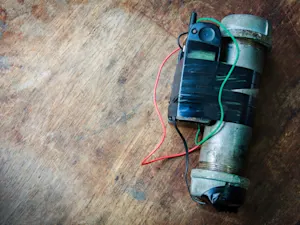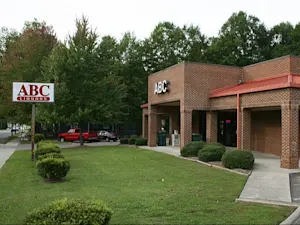
Strangled, Hidden, and Left to Rot — The Ivy League Murder That Shocked the Nation
On the morning of Sept. 8, 2009, 24-year-old Annie Le, a Yale graduate student, walked into a laboratory building at Yale's School of Medicine. Security cameras captured her entrance, but she never left the building — at least, not alive.
Suddenly Vanished
Le was just days away from her wedding to her college sweetheart, Jonathan Widawsky, a moment that should have been filled with joy and excitement. Instead, her sudden disappearance sent shockwaves through the Yale community and beyond. As police launched an investigation, speculation ran rampant. Could she have left voluntarily? Had she been abducted? Or worse, had something sinister happened within the walls of the very place where she spent countless hours researching pharmacology?
The Search and a Horrifying Discovery
The search for Annie Le quickly escalated. Authorities combed through surveillance footage and realized that none of the 70 cameras in and around the building showed her exiting. This chilling detail raised immediate concerns.
Yale offered a $10,000 reward for information, and law enforcement agencies, including the FBI, were brought in to assist. More than 100 officers scoured the campus, and the search even extended to a trash incinerator located 40 miles away.
The first grim clue emerged on Sept. 12, when police found a set of bloodstained clothes stuffed above a ceiling tile. Then, just a day later — on what should have been Annie's wedding day — investigators made a horrifying discovery. Her body was found behind a utility panel in the basement of the lab building. She had been strangled to death.
The Arrest of Raymond Clark III
As the investigation unfolded, attention turned to Raymond Clark III, a 24-year-old animal technician who worked at the same research facility. Clark, whose job involved taking care of lab animals, was known to be strict about lab cleanliness and had previously sent Le emails reprimanding her for leaving behind dirty cages.
Police reviewed building access logs, which showed that Le had entered a restricted basement area — an area Clark had access to as well. Forensic evidence mounted against him. DNA swabs linked him to the crime scene, leading authorities to arrest him on Sept. 17, 2009.
The Motive Remains a Mystery
Despite Clark's conviction, the true motive behind Annie Le's murder remains unclear. Some speculated workplace tension or personal animosity, but no clear explanation ever surfaced.
During legal proceedings, Clark eventually pleaded guilty to murder and attempted sexual assault in exchange for a 44-year prison sentence. He addressed the court, stating that he alone was responsible for the death of Annie Le and for causing pain to those who loved her.
A Campus in Mourning
Annie Le's murder sent shockwaves through Yale, a university known for its prestige and academic excellence. Students and faculty struggled to process the fact that such a horrific crime had occurred within their own community. Yale President Richard Levin called it a workplace crime, emphasizing that it could have happened anywhere, though it undoubtedly heightened security concerns on campus.
Following the tragedy, Yale took steps to improve security measures, including expanding criminal background checks for employees and increasing emergency communication systems in isolated areas.
Remembering Annie Le
Annie Le was more than a headline. She was a brilliant young woman with an infectious smile, a passion for science, and a promising future ahead. Born in San Jose, California, she excelled academically from a young age. She was the valedictorian of her high school class and earned a full scholarship to the University of Rochester before pursuing her PhD at Yale.
As reported by the Yale Alumni Magazine, her friends and family remember her as a kind, driven, and joyful person who had so much left to accomplish. In the wake of her death, the Yale community and her loved ones created scholarships and memorials in her honor, ensuring that her legacy lives on.
A Case That Still Haunts
Even years later, Annie Le's murder remains one of the most haunting crimes in Ivy League history. While her killer was brought to justice, many questions linger. What truly motivated Raymond Clark? Could better security have prevented her death? And how does a community recover from such a tragic loss?
While we may never have all the answers, one thing is certain: Annie Le's life was one of brilliance, ambition, and kindness. Her story serves as a sobering reminder of the darkness that can lurk even in the safest places, but also of the resilience of those who carry her memory forward.
References: The Death of Annie Le | Why Was Yale Student Annie Le Murdered 5 Days Before Her Wedding? | Raymond Clark III Pleads Guilty in Murder and Attempted Sexual Assault of Yale Grad Student Annie Le























